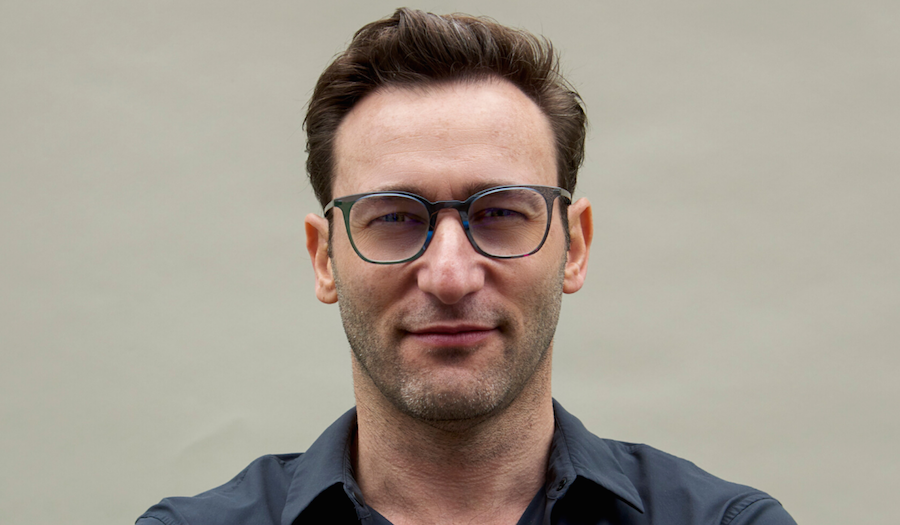Why We All Need a ‘Just Cause’

The following is an excerpt from Simon Sinek’s “The Infinite Game,” his latest framework for leadership in an ever-changing world.
Howard’s Little League team was one of the, if not the, worst in the league. At the end of each lost game, his coach would say to the players, “It doesn’t matter who wins or loses, what matters is how we played the game.” At which point, the precocious young Howard would raise his hand and ask the coach, “Then why do we keep score?”
When we play in a finite game, we play the game to win. Even if we hope to simply play well and enjoy the game, we do not play to lose. The motivation to play in an infinite game is completely different—the goal is not to win, but to keep playing. It is to advance something bigger than ourselves or our organizations. And any leader who wishes to lead in the Infinite Game must have a crystal clear Just Cause.
A Just Cause is a specific vision of a future state that does not yet exist; a future state so appealing that people are willing to make sacrifices in order to help advance toward that vision. Like Vavilov’s scientists, the sacrifice people are willing to make may be their lives. But it needn’t be. It can be the choice to turn down a better-paying job in order to keep working for an organization that is working to advance a Just Cause in which we believe. It may mean working late hours or taking frequent business trips. Though we may not like the sacrifices we make, it is because of the Just Cause that they feel worth it.
“Winning” provides a temporary thrill of victory; an intense, but fleeting, boost to our self-confidence. None of us is able to hold on to the incredible feeling of accomplishment for that target we hit, promotion we earned or tournament we won a year ago. Those feelings have passed. To get that feeling again, we need to try to win again. However, when there is a Just Cause, a reason to come to work that is bigger than any particular win, our days take on more meaning and feel more fulfilling. Feelings that carry on week after week, month after month, year after year. In an organization that is only driven by the finite, we may like our jobs some days, but we will likely never love our jobs. If we work for an organization with a Just Cause, we may like our jobs some days, but we will always love our jobs. As with our kids, we may like them some days and not others, but we love them every day. A Just Cause is not the same as our WHY. A WHY comes from the past. It is an origin story. It is a statement of who we are—the sum total of our values and beliefs. A Just Cause is about the future. It defines where we are going. It describes the world we hope to live in and will commit to help build. Everyone has their own WHY (and everyone can know what their WHY is if they choose to uncover it). But we do not have to have our own Just Cause, we can choose to join someone else’s. Indeed we can start a movement, or we can choose to join one and make it our own. Unlike a WHY, of which there can be only one, we can work to advance more than one Just Cause. Our WHY is fixed and it cannot be changed. In contrast, because a Just Cause is about something as of yet unbuilt, we do not know exactly the form it will take. We can work tirelessly to build it however we want and make constant improvements along the way.
Think of the WHY like the foundation of a house, it is the starting point. It gives whatever we build upon it strength and permanence. Our Just Cause is the ideal vision of the house we hope to build. We can work a lifetime to build it and still we will not be finished. However, the results of our work help give the house form. As it moves from our imagination to reality it inspires more people to join the Cause and continue the work . . . forever. For example, my WHY is to inspire people to do what inspires them so that together we can each change our world for the better. It is uniquely mine. My Just Cause is to build a world in which the vast majority of people wake up inspired, feel safe at work and return home fulfilled at the end of the day, and I am looking for as many people as possible who will join me in this Cause.
It is the Just Cause that we are working to advance that gives our work and our lives meaning. A Just Cause inspires us to stay focused beyond the finite rewards and individual wins. The Just Cause provides the context for all the finite games we must play along the way. A Just Cause is what inspires us to want to keep playing. Whether in science, nation-building or business, leaders who want us to join them in their infinite pursuit must offer us, in clear terms, an affirmative and tangible vision of the ideal future state they imagine.
From THE INFINITE GAME by Simon Sinek published by Portfolio, an imprint of Penguin Publishing Group, a division of Penguin Random House, LLC. Copyright © 2019 by RedCar, LLC
This book excerpt was featured in the December 15th edition of The Sunday Paper. The Sunday Paper inspires hearts and minds to rise above the noise. To get The Sunday Paper delivered to your inbox each Sunday morning for free, click here to subscribe.


